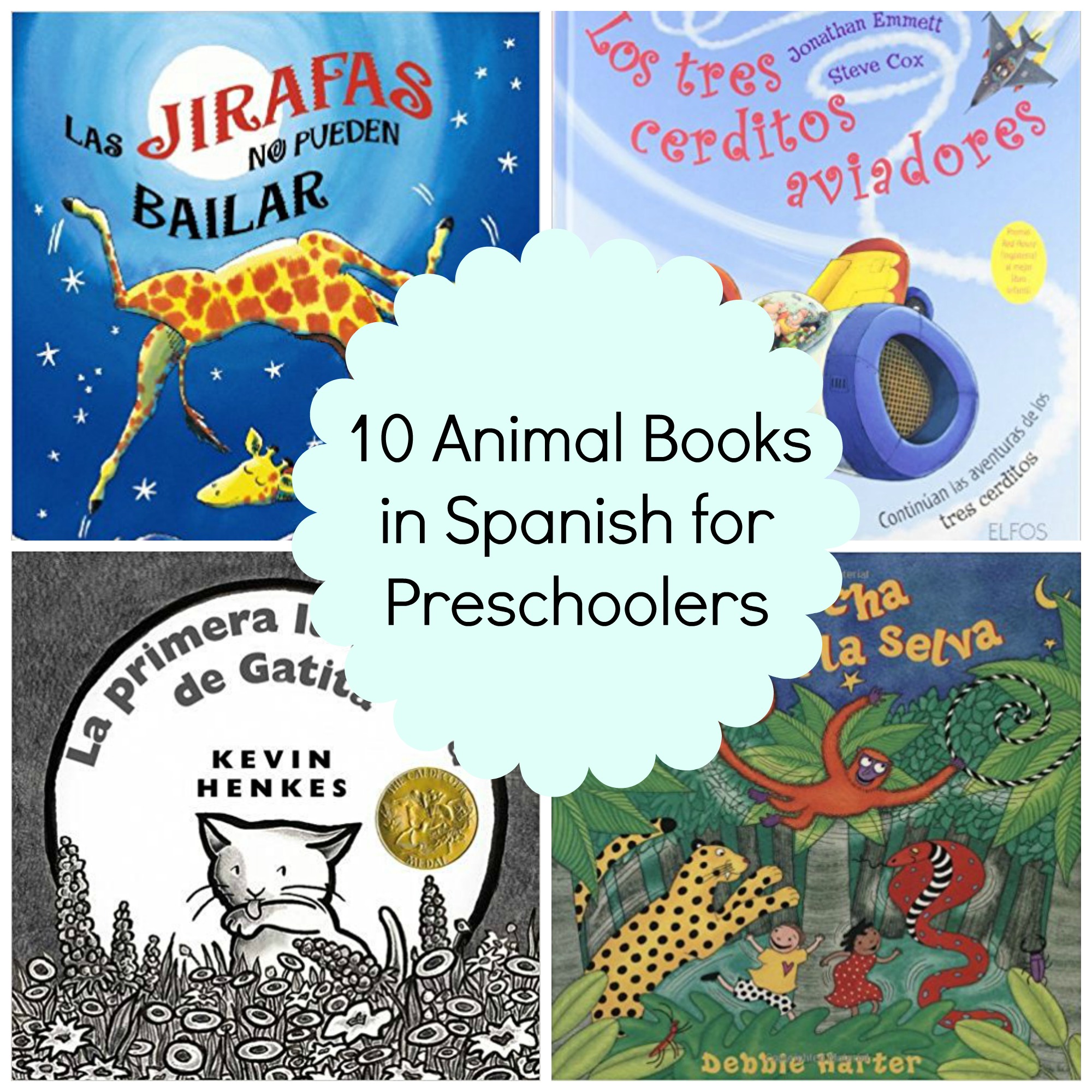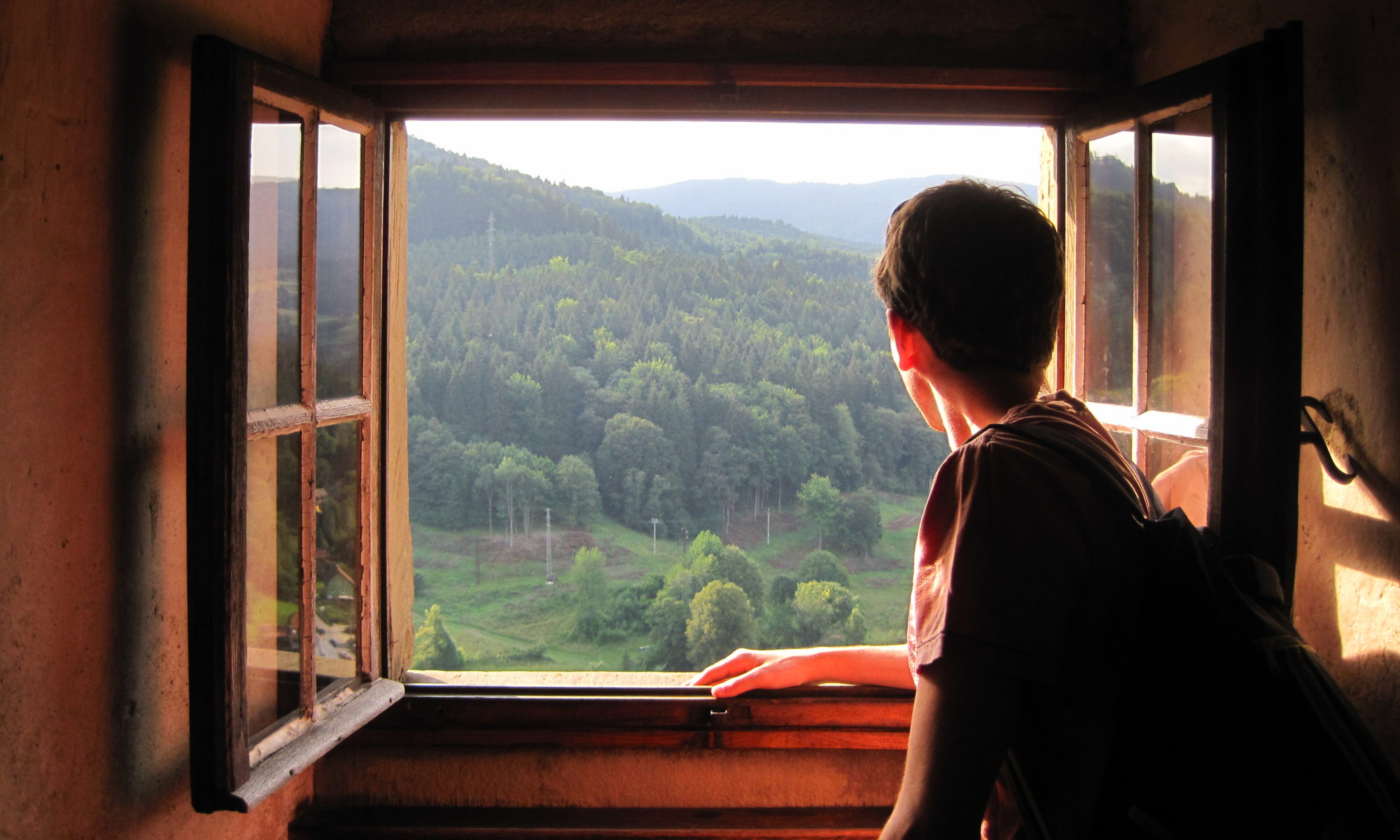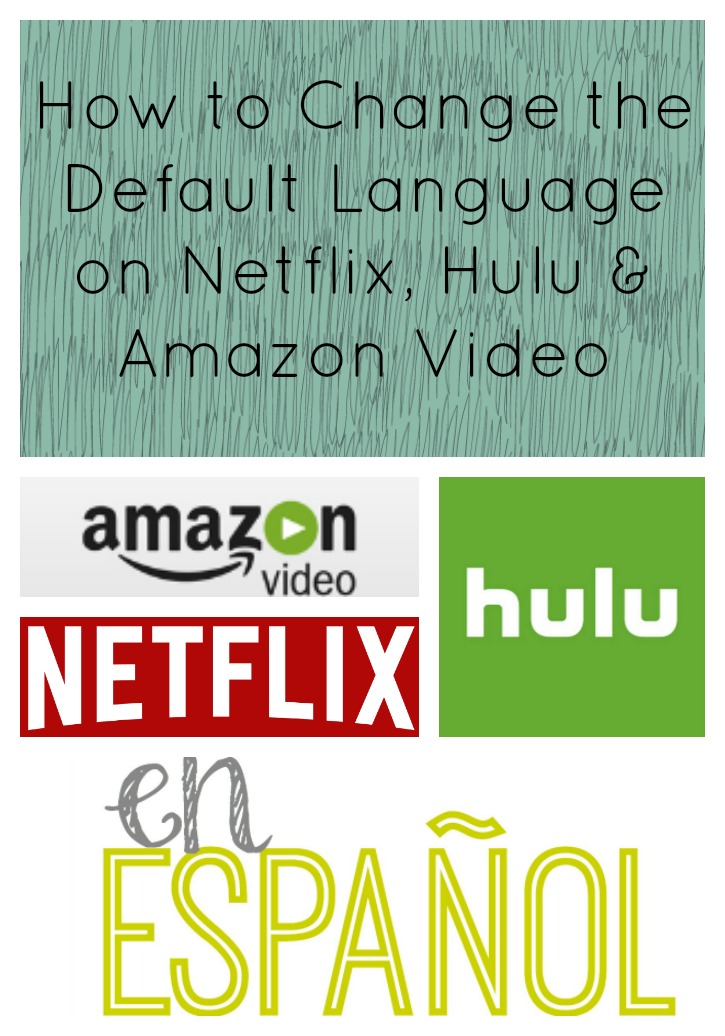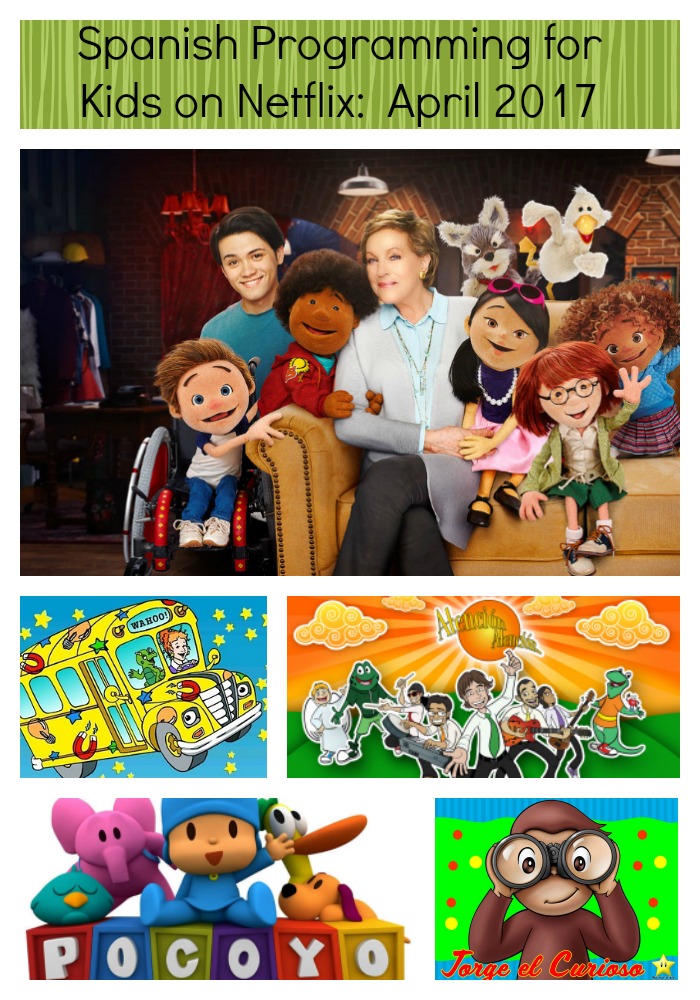Mr. OneDosTres introduced me to Fawlty Towers (affiliate) many years ago when we first met. It’s a decidedly British show that is very much a product of its time (and which I only understand with subtitles on). I thought I’d share one of my favorite moments from the show as it seems particularly relevant to what we’re doing here. Language misunderstandings like these are both fascinating and somewhat hilarious to me, as you will come to see.
How to Change the Default Language on Netflix, Hulu & Amazon Video
I’m embarrassed to admit how long it took me to figure out how to set default languages or search for Spanish content on the various streaming services we use. So I thought I would share what I’ve found and save you the trouble of figuring it out. Keep reading to see how you can change default languages and search for Spanish language content on Netflix, Hulu and Amazon Video.
Continue reading “How to Change the Default Language on Netflix, Hulu & Amazon Video”
10 Animal Books in Spanish for Preschoolers

Anyone who knows me knows (and for those of you who don’t, you’ll soon learn) that I love books. (I say love, my husband says obsessed…does it really matter how we label it?). They’re good for every occasion, are the perfect way to start and end a day, perfect for the car, on the road, at home. . .Throughout every nook and corner of our house, from the basement to the living room and up through each and every bedroom, we have books. It’s no surprise that a lot of those books are in Spanish and Slovak, which we’ve selfishly accumulated over the years to avoid having to translate books from English to Spanish and Slovak. The story just flows better when we’re not struggling to translate in realtime and it’s a lot easier to include stories that rhyme when the book does it for you.
In any case, today I present to you: my top 10 (though I could go on and on) recommendations for books in Spanish featuring animals or about animals for preschoolers! (These are all affiliate links):
La primera luna llena de gatita Our family loves this book. As a newborn, my now-toddler could stare at the black and white images for amazing, catch-my-breath minutes at a time. And our preschooler loves being in on the joke that Gatita thinks she is chasing an enormous bowl of milk that is actually the first full moon she’s ever seen. The story is sweet and the simple drawings are wonderful. It’s one of my go-to gifts for any Spanish speaking young kid.
Continue reading “10 Animal Books in Spanish for Preschoolers”
Spanish Programming for Kids – Netflix April 2017
As I’m sure you all know, in a pinch, TV can be a lifesaver. Until recently, whenever N gets to watch a videito I’ve had to scramble to find an age-appropriate show in Spanish, which can be surprisingly hard if I don’t already have a specific show in mind! So I thought I would put together a cheat sheet for some of the great young kids’ programming available in Spanish on Netflix right now. This is not intended to be an all-inclusive list (and I excluded some programs that we sampled and I didn’t like), but at the very least it’s a good start. If you have any programs to add, feel free to note them in the comments!
Where available, I’ve included links either about the show or to the show’s site, including free episodes available online (not all are in Spanish). All of the shows I’ve included below are aimed at younger kids (rated TV-Y, which is appropriate for ‘all children’ or TV-G, which is for a general audience, including children), just in case your little has an active imagination and is easily frightened, like N, who walked out of Moana a few months ago and still talks about the scary “tummy guy” (aka Maui, the “demigod”).
Continue reading “Spanish Programming for Kids – Netflix April 2017”
“The linguistic genius of babies”
I came across this 2010 Ted Talk by Patricia Kuhl recently, which is certainly not new to some, but was new to me. I thought I would share as it supports what we’re all trying to do to some degree: expose our children to language early and often.
Ms. Kuhl touches upon an interesting point, which is basically that children should be exposed to new languages as early as possible. She starts out by explaining that “babies and children are geniuses” at learning languages “until they turn seven, and then there’s a systematic decline. After puberty, we fall off the map.” This is not to say that you can’t learn a language after 7, but it does become increasingly more difficult. I can attest to this, as I briefly flirted with the idea of learning Slovak, until I realized learning a handful of phrases during my morning commute was not going to cut it (and did you know Slovak has 7 conjugations and even nouns are conjugated?!).



